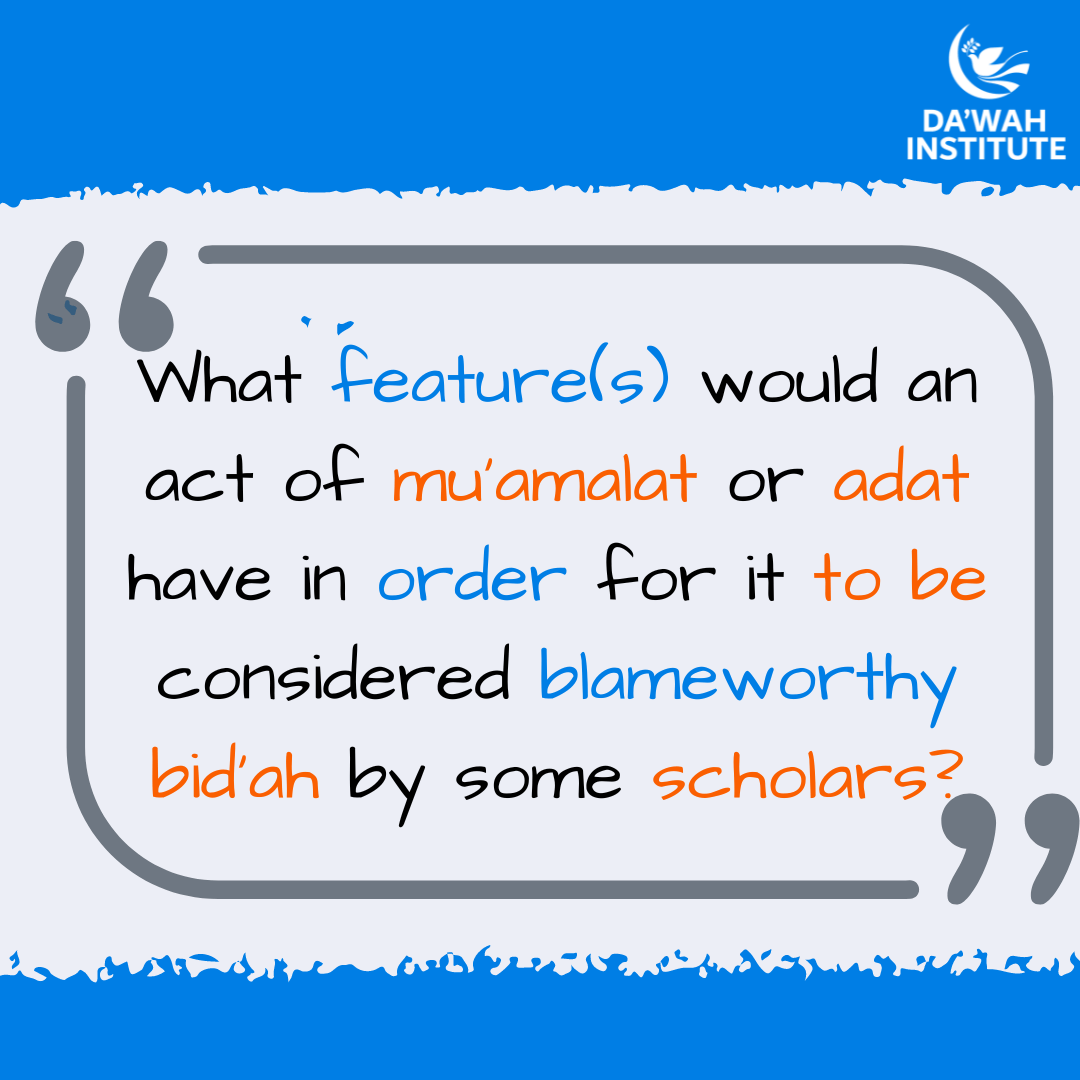
Imam Al-Suyuti says, “It has been clarified for you that the people (qawm) were wary of innovation, even if there was no harm lest they create something that was (harmful). And yet, novelties (muhdathat) occurred that do not clash with the law (shari’ah) and do not negatively affect it, and they did not see harm in doing them, but rather some of them said, ‘they are acts of drawing near to Allah (innaha qurbah)’, and this is correct, as it was related that the people used to pray during Ramadan individually…” Al-Suyuti, Al-Amr bi al-Ittiba’ wa al-Nahy ‘an al-Ibtida’, p.36-37
According to this opinion, the criteria for the assessment of mu’amalat are the same as that for assessing innovations in deen or ibadat. Only those innovations that contradict the Qur’an and Sunnah are blameworthy bid’ah.
The term bid’ah is also used to cover innovations in mundane affairs (mu’amalat). ‘Aisha was reported to have said, “The first innovation (bid’ah) that took place after the Messenger of Allah was satiety from eating (al-shab’)”. Al-Suyuti, et al., Sharh Sunan Ibn Majah, Hadith no. 1094, Al-Maktabah al-Shamilah.
This often is cited as evidence of the term bid’ah being used for blameworthy innovations in mu’amalat that contradict the spirit of the Shari’ah.
Examples of how a mu’amalat could become a bid’ah include the wearing of gold or silk by men, or the consumption of alcohol or swine is a mu’amalat that is prohibited (haram) by explicitly clear evidence. Accepting that the Qur’an forbids the consumption of alcohol is an obligation (fard), which is based on the explicitly clear and undisputedly authentic verses of the Qur’an (and Hadith). Rejecting this teaching of the Qur’an as wrong amounts to disbelief (kufr). Accepting that it is forbidden (haram) to consume alcohol, but still consuming it is wrong-doing (fisq) but not kufr. Re-interpreting it as not being actually forbidden but only discouraged (makruh) or permitted (halal) is a blameworthy innovation (bid’ah) and not just a prohibition (haram). It is a blameworthy bid’ah because it contradicts the teachings of the Qur’an and Sunnah, and yet it is being presented as part of the Shari’ah. The same logic would apply to consumption of the “flesh of swine” or taking of “riba”, etc. – once the definition was agreed upon.




